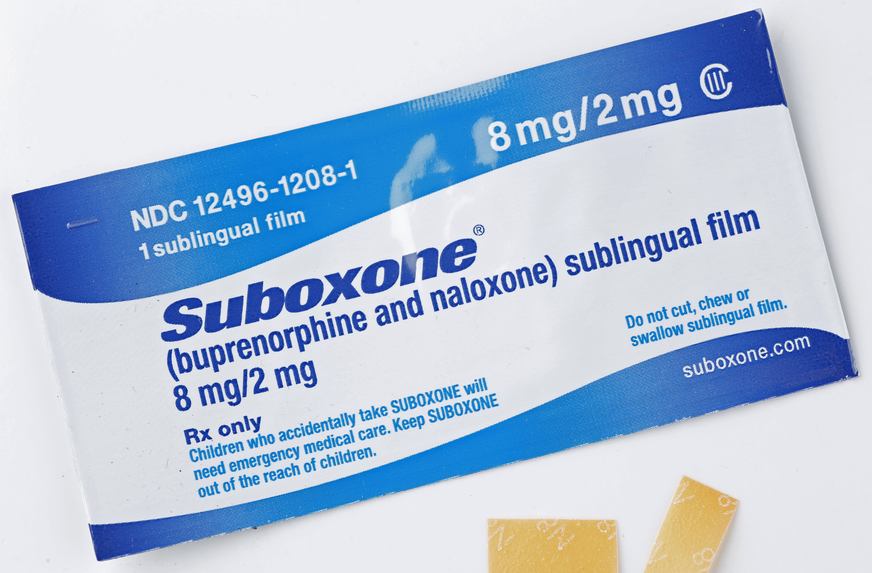Anti-Opioid Drug Suboxone Oral Film Linked to Tooth Loss, Tooth Extractions
What’s is Suboxone and is how is it linked to Tooth Loss?
Suboxone, is an anti-opioid medication used to treat addiction to opioids/opiates which has been linked to tooth decay, tooth loss and other serious dental problems when taken sublingually as a dissolving oral film under the tongue. The drug is manufactured by Reckitt Benckiser and Indivior, Inc. which is a subsidiary of Reckitt Benckiser.
Reckitt Benckiser originally designed and manufactured Suboxone as a tablet to counter the addictive effect of opioids and gained FDA approval in 2002 as an “orphan drug.” The patent on Suboxone expired on October 8, 2009, thereby allowing generics to enter the market.
To avoid losing its patent protection, in 2006, Indivior, the subsidiary of Reckitt Benckiser, began exploring utilization of a different form of administration for Suboxone in the form of an oral film. Ultimately, the FDA approved the film version on August 30, 2010, and Reckitt Benckiser/Indivior obtained a patent of July 2, 2013.
What Drugs are Included in this Lawsuit:
- Suboxone Film (Reckitt Benckiser/Indivior)
Why is Suboxone bad for your teeth when administered via the oral film?
Acidity: Suboxone is acidic, with a 3.4 pH when dissolved in water. That acidic solution could wear away your enamel, allowing your teeth to succumb to bacteria and decay.
Dryness: Many people using Suboxone have a low amount of saliva. Without enough fluid to buffer your teeth, they’re vulnerable to decay. Food stays in place, and bacteria grows. The film also increases the acidity in the mouth which softens enamel and allows the enamel to deteriorate. It can be particularly problematic if the suboxone user brushes their teeth too soon after use as the enamel can easily be brushed off while it is softened from the acidity.
Unfortunately, Reckitt Benckiser/Indivior failed to warn doctors and/or patients about the risk of tooth decay, tooth loss/extractions, and general dental health concerns when they brought this new version of their product to the market, a product that was brought to the market with the sole purpose of circumventing their expiring patent so that they could continue to rake in high profits at the expense of generic competitors and consumers.
What can I do to reduce the risk of dental problems if I am taking Suboxone oral film
- Rinse after your dose
After the Suboxone tablets or strips are fully dissolved, rinse your mouth out with a large sip of water. Swish it around your mouth to get rid of any of the remaining medication.
- Wait to brush your teeth
The acid in Suboxone can soften your tooth enamel, making it vulnerable to abrasive toothpaste and brushing. Wait an hour or more after taking your dose to brush your teeth. The extra time allows the enamel to reharden, so it’s less likely to be worn away when brushing. This is not common sense as most people would think that by brushing immediately after use of the product, they would be doing a beneficial thing when in reality, it appears that brushing too soon after leads to enamel loss which can cause dental problems.

Who Qualifies to file a claim?
"The U.S. Food and Drug Administration (FDA) is warning that dental problems have been reported with medicines containing buprenorphine that are dissolved in the mouth. The dental problems, including tooth decay, cavities, oral infections, and loss of teeth, can be serious and have been reported even in patients with no history of dental issues."
Who Qualifies to file a claim?
Currently, attorneys are filing claims for individuals who used Suboxone Film prior to January 2022 and suffered:
- Tooth loss or tooth extraction of multiple teeth
- Do not have a documented history of methamphetamine or heroin use
- Prescription and use were not exclusively in the following states: New Jersey, Texas, Michigan, Louisiana, Kentucky, Tennessee, & Virginia.
- As of February 2024, we are currently filing claims for people who live in states and used/were prescribed Suboxone in states that have a Statute of Limitations of 3 years or more:
-
Arkansas, Connecticut, District of Columbia, Maryland, Massachusetts, Mississippi, Montana, New Hampshire, New Mexico, New York, North Carolina, Rhode Island, South Carolina, South Dakota, Washington, Wisconsin, Maine, Minnesota, Missouri, Nebraska, North Dakota, Wyoming.
-
- We are not accepting claims for states with 2 year Statute of Limitations or less:
- Alabama, Arizona, Alaska, California, Colorado, Connecticut, Georgia, Hawaii, Idaho, Illinois, Indiana, Iowa, Kansas, Kentucky, Louisiana, Mississippi, Nebraska, New Jersey, Ohio, Oklahoma, Oregon, Pennsylvania, Tennessee, Texas, Utah, Virginia, West Virginia.
FDA Warning and Label Change
In June of 2022, FDA issued the following warning regarding Suboxone: warning that dental problems have been reported with medicines containing buprenorphine that are dissolved in the mouth. The dental problems, including tooth decay, cavities, oral infections, and loss of teeth, can be serious and have been reported even in patients with no history of dental issues.” See FDA Drug Safety Communication (Jan. 12, 2022) (available at https://www.fda.gov/media/155352/download?attachment)
Indivior’s shady history
Indivior has had numerous encounters with the Department of Justice over the years with violations ranging from antitrust issues to illegal marketing of their products. In June of 2023, numerous attorney generals reached a $102.5 million settlement with Indivior for violations of the Sherman Act.
On April 9, 2019, a federal grand jury in Virginia indicted Indivior of engaging in a national scheme to illegally increase sales of Suboxone film over the pill version. The suit resulted in Reckitt Benckiser paying more than $1.4 billion to the federal government, several states, and the FTC.
Did you or a loved on use Suboxone Film for six months or longer and suffer severe tooth decay resulting in tooth loss, extraction or other serious dental health complications?
Find out now if you qualify for compensation.
Find Out MoreConsumer Safety Watch offers safety advocate services and attorney referral services for patients throughout the United States including the states of Alabama, Alaska, Arizona, Arkansas, California, Colorado, Connecticut, Delaware, Florida, Georgia, Hawaii, Idaho, Illinois, Indiana, Iowa, Kansas, Kentucky, Louisiana, Maine, Maryland, Massachusetts, Michigan, Minnesota, Mississippi, Missouri, Montana, Nebraska, Nevada, New Hampshire, New Jersey, New Mexico, New York, North Carolina, North Dakota, Ohio, Oklahoma, Oregon, Pennsylvania, Rhode Island, South Carolina, South Dakota, Tennessee, Texas, Utah, Vermont, Virginia, Washington, West Virginia, Wisconsin and Wyoming.
Consumer Safety Watch offers consumer safety advocate services or can help you find an attorney throughout the United States including the following cities: Albuquerque, NM; Arlington, TX; Atlanta, GA; Austin, TX; Baltimore, MD; Boston, MA; Charlotte, NC; Chicago, IL; Cleveland, OH; Colorado Springs, CO; Columbus, OH; Dallas, TX; Denver, CO; Detroit, MI; Fresno, CA; Fort Worth, TX; Indianapolis, IN; Honolulu, HI; Houston, TX; Jacksonville, FL; Kansas City, KS; Kansas City, MO; Las Vegas, NV; Long Beach, CA; Los Angeles, CA; Louisville, KY; Memphis, TN; Mesa, AZ; Miami, FL; Miami, OH; Milwaukee, WI; Minneapolis, MN; Nashville, TN; New York City, NY; Oakland, CA; Oklahoma City, OK; Omaha, NE; Philadelphia, PA; Phoenix, AZ; Pittsburgh, PA; Portland, OR; Sacramento, CA; San Antonio, Tx; San Diego, CA; San Francisco, CA; San Jose, CA; Seattle, WA; St. Louis, MO; Tampa, FL; Tucson, AZ; Tulsa, Virginia Beach, VA; Washington, DC; Wichita, KS.
This website is not affiliated with any pharmaceutical or medical device company or any trademarked product. Results are not guaranteed. This website provides a free matching service and is not responsible for information or services from third party providers. Consumer Safety Watch is not a law firm. Every case is different and services available can vary.


